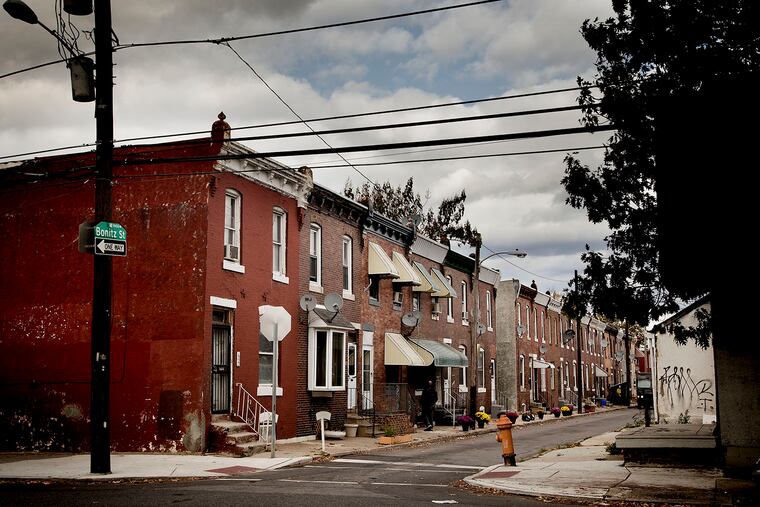New Philly lead bill should be first step in housing culture change | Editorial
Asking landlord to follow housing codes is not a big ask.

On Thursday, after almost a year, Philadelphia City Council is poised to pass a bill to protect children from lead poisoning in the city’s rental properties. The bill, introduced in October 2018 by Council member Blondell Reynolds Brown, would require all landlords renting units in buildings that were built before 1978 — when the use of lead paint was federally banned — to obtain a certification that the unit is “lead safe” every four years.
The bill is a welcome development. No amount of lead in a child’s blood is safe. Because of a combination of the old housing stock in Philadelphia, lax enforcement, and high poverty rate, lead poisoning among Philadelphia’s children is more prevalent than among those of Flint, Mich. The source is not a poisoned water, but the schools and houses that children spend time in.
This bill expands a 2011 bill to all properties built before 1978 and not just those in which children under 6 reside. The 2011 law left children vulnerable to lead in other houses. Further, it incentivized landlords to discriminate against families with children — one of the most common forms of housing discrimination. The new bill aims to amend these imbalances.
When the current bill was first introduced, it required recertification every two years and then was amended to three. Landlords and health advocates sparred over this frequency and last week the bill was amended to require recertification every four years — which is plenty of time for paint to chip and potentially harm children.
Ensuring housing standards in rental units should be a priority for our legislators — and Council should support this new legislation — but they should also keep in mind: Safe housing is already the law.
Being a landlord means more than renting four walls, a roof, and a floor. In every state, and in most cities including Philadelphia, housing codes require units to be habitable — that includes no chipped paint.
Housing codes in Philadelphia should be a requirement, not a recommendation.
For close to four decades, Philadelphia’s Fair Housing Ordinance has prohibited discrimination against people who pay rent using a housing voucher. Still, according to a Pew study, two-thirds of Philadelphia landlords are unwilling to accept voucher-holders as tenants.
The excuse landlords give for not accepting voucher-holders is that their units are not certified to participate in the voucher program. In other words, landlords use the fact that their unit might not be up to code, and that they are unwilling to be inspected (a requirement to lease with a voucher-holder), as an excuse to violate the law. Over the summer, the Public Interest Law Center filed complaint against five landlords with the Philadelphia Human Rights Commission, challenging this defense.
After enacting the lead bill, Philadelphia needs a culture change among landlords. That would require both enforcement that reminds that laws are on the books for a reason and a campaign to empower landlords to keep their units up to code — not only to avoid sanction but because it is the right thing to do.